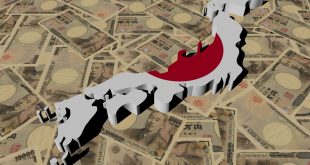President of the Federal Reserve Bank of St. Louis, James Bullard has commented on the latest CPI data saying that he ”won’t emphasize single inflation report too much but inflation is more persistent than many have thought.”
The markets are in a freefall into the closing bell on Wall Street on hawkish Fed sentiment. Markets have digested the inflation data over the course of the trading day making for swings in risk sentiment and price action across the financial asset classes. It was a mixed report in that the Consumer Price Index climbed 8.3%, higher than the 8.1% estimate but below the 8.5% in the prior month.
Also, the index rose just 0.3% last month, the smallest gain since last August, the Labor Department said on Wednesday, versus the 1.2% MoM surge in the CPI in March, the most significant advance since September 2005. However, ”the fact that the CPI is driven by rents and services implies that price pressures are entrenched and may manifest in upward pressure on wages too,” analysts at TD Securities argued. The sentiment is weighing on US stocks into the closing bell.
The Dow Industrial Average is falling some 1% giving up earlier gains to print fresh lows for the session. The S&P 500 slid 1.7% after increasing 0.5% earlier in the session to new session lows and the Nasdaq Composite has dropped by over 3%, currently extending intraday declines while the 2-year yield increased to 2.857% and is aligned closely with Federal Reserve’s interest rate policy.
Bullard’s comments come after Wednesday’s Consumer Price Index report that has contributed to markets turning on a dime in recent trade and sell off to session lows.
Key Quotes
Feel goal should be about 3.5% on the Fed funds rate by end of the year.
Some of April’s inflation number is “transitory,” but “a big chunk” is likely persistent and will need a policy response.
50bps hikes at coming meetings “a good benchmark for now”.
April inflation was “hot” but not far from what was expected.
Effects of Fed policy being felt quickly in financial markets.
“Base case” does not include a three quarter-point rate increase.
Volatility in stablecoin market does not look “systemic,” but is validating to those who perceive them as risky.
Recession risk is not that high in the US right now.

 Noor Trends News, Technical Analysis, Educational Tools and Recommendations
Noor Trends News, Technical Analysis, Educational Tools and Recommendations




